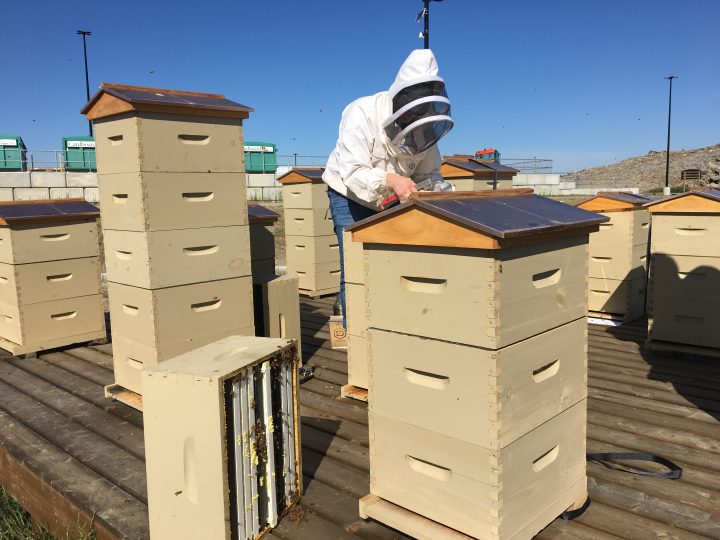Southern Alberta fields are abuzz as honey bees begin to emerge after a long winter. But the bee population has taken a hit this spring.

Renata Borba with the Alberta Beekeepers Commission said Alberta saw huge losses in the province’s pollinators.
“We estimate so far about 45 per cent, which is very high,” added Borba.
When it comes to the ‘why,’ Borba said its not a simple answer. It could be from parasites, viruses, pesticides or the weather.
“We do have a few culprits that we think are the reason the colonies died and we experienced the high mortality, but we don’t know for sure,” she said.
University of Lethbridge associate researcher Shelley Hoover added the high death toll is Canada-wide, with some areas experiencing a 90 per cent loss.
Closer to home, she said the drought and extreme heat that blanketed the prairies last year was hard on crops, which in turn was hard on bees.
“The crops are not producing the usual amounts of nectar or the pollen is nutritionally deficient — these are things that are affected by heat,” added Hoover.
She said the ongoing dry conditions this spring is also hard on the bees, who rely on a constant water source to survive.
“It”s just like any other livestock animal or wild animal: they have to go out and find water. They need it both in terms of drinking water but they also use evaporative cooling to cool their hives when it gets hot, so the drought was a double whammy.”
The high mortality rate is causing a huge financial blow to bee producers who now have to replace their bees. The widespread loss means there is not many domestic options to choose from.
“COVID has been limiting flights for about two years now, so its becoming increasingly hard to get international imports to replace bees as well,” added Hoover.
With producers facing so many challenges, Hoover suggests the best way to support beekeepers to buy local honey.


Comments